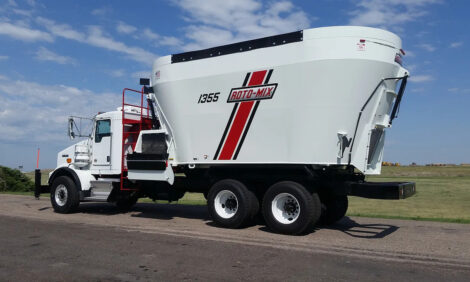



OSI Group Helps Scale Regenerative Grazing in US
OSI Group is partnering with other U.S. Roundtable for Sustainable Beef members to help scale regenerative grazing practices in the Northern Great Plains in Montana through a project run by regional non-profit Western Sustainability Exchange and international carbon project developer NativeEnergy.The partnership of global food corporations is providing funds and support to the program, which recruits and educates ranchers, then measures and verifies their progress in carbon sequestration.
The Montana Improved Grazing Project began in 2017 and is an active, ongoing project providing educational resources and investment to enable ranchers to convert their practices to those that accelerate and improve their soil’s health, increase carbon capture and boost the profitability of ranchers in the Northern Great Plains.
“The new challenges caused by the COVID-19 pandemic are leading us all to reassess our impacts, and we are confident that our commitment to sustainability is the strongest foundation for recovery,” said OSI Group Chief Sustainability Officer Nicole Johnson-Hoffman. “We are proud to support farmers and ranchers who demonstrate leadership in climate smart agriculture because now more than ever, regenerative grazing is an important answer to food security, supply chain disruption and climate change.”
Regenerative grazing, otherwise known as rotational grazing or Adaptive Multi Paddock (AMP) grazing, improves soil health and ecosystem resiliency and increases soil carbon sequestration by moving grazing livestock from pasture to pasture on a regular basis. This more intensive grazing activity stimulates plant growth, while allowing much longer periods of rest and recovery for vegetation once the cattle have moved to new pastures. This allows areas of the farm to rest and regenerate.
“The potential for regenerative grazing practices to be a scalable solution to climate change, while positively affecting ranching families and regional ecosystems, is profound,” said president of NativeEnergy, Jeff Bernicke. “OSI’s support of the Montana Improved Grazing Project is a meaningful contribution to advancing regenerative practices in Montana and increasing awareness of the benefits globally.”
The support given through OSI Group’s partnership will help NativeEnergy and Western Sustainability Exchange achieve their goal of expanding the program to 200,000 acres of grasslands in Montana. The project will provide the necessary educational resources and financial security to enable ranchers to convert their practices, resulting in more productive lands, reduced input costs, increased rancher profitability and delivery of real and measurable environmental results.
“Montana ranchers are uniquely positioned to provide leadership on regenerative agriculture. Companies like OSI play a leadership role by providing financial support to programs that recognize the essential role farmers and ranchers play in creating healthy soil and increasing carbon capture,” said Western Sustainability Exchange Executive Director Lill Erickson. “Together we are implementing a project that has important implications, not only in the Northern Great Plains, but throughout the West.”
Funding provided by OSI Group and other partner companies will support rancher education in regenerative grazing practices and soil sampling analysis and monitoring. Under the direction of project developer NativeEnergy, soil sampling and testing will be conducted to establish the baseline of participating ranches and help build the U.S. soil carbon data set. The data will be taken from soil sample analyses modeled in the SNAPGRAZE soil model to estimate soil carbon levels across each ranch and to adjust and improve the model across the region.
In addition to the environmental benefits achieved through this program and the expansion of regenerative grazing techniques, ranchers and their businesses also benefit. Through this program, ranchers will gain a new economic incentive to sequester carbon as well as achieve environmental co-benefits that include restoration of waterways and riparian zones, restoration of native grasses and plant diversity, and the restoration of habitats for insects, birds, amphibians and mammals.
As a member of the U.S. Roundtable for Sustainable Beef (USRSB), OSI seeks to further advance, support and communicate continuous improvement in the sustainability of the beef value chain by partnering with like-minded organizations working to increase adoption of regenerative practices and drive real and measurable environmental results at scale.


